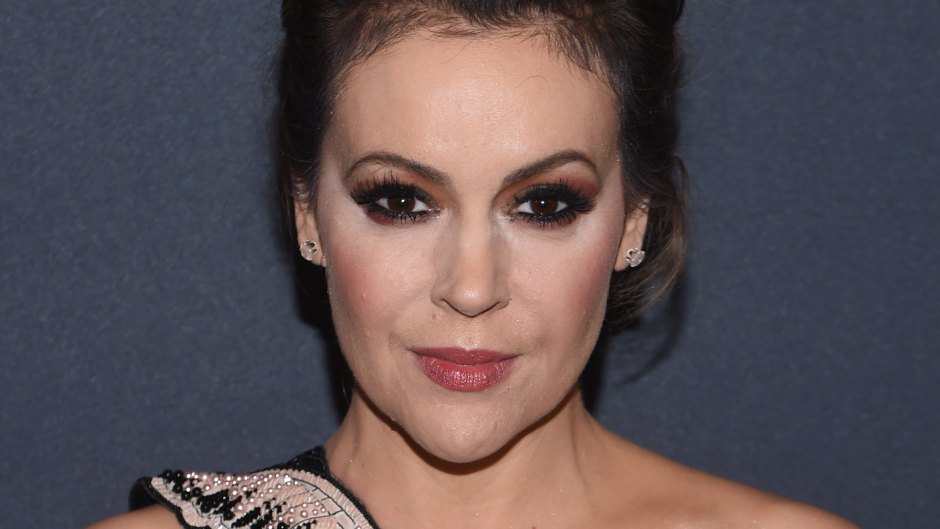
Getty Images
Alyssa Milano Bravely Opens up About Battling Postpartum Anxiety: “I Felt Like I Was Dying”
They say stars are just like us, and Alyssa Milano says she's just like 40 million Americans in that she lives with a mental illness. And with May being Mental Health Awareness Month, the Charmed actress is opening up about her postpartum anxiety in hopes of spotlighting mental illness struggles and convincing lawmakers to defend Americans' access to health care.
In a new essay for TIME, the 45-year-old revealed her journey with mental illness began with the birth of her first son, Milo. She had suffered a miscarriage two years prior, but this pregnancy had progressed beautifully… until she started experiencing complications 10 days before her due date.
She had hoped to give birth naturally with no induction of labor and no pain medication. But with the complications, her doctors had to induce labor, give her an epidural, and perform a C-section — everything she didn't want — when they delivered Milo on Aug. 30, 2011. And Alyssa's first anxiety attack came her first night home with her newborn son.
"I felt like I had already disappointed my child," she wrote. "I felt like I failed as a mother, since I was not able to give birth vaginally or nourish him with the breast milk that had not come in yet. My heart raced. My stomach seized up. I felt like I was dying."
A few months later, when Milo developed a high fever and suffered from a febrile seizure, the "paralyzing anxiety" returned — and Alyssa was due to start work on a TV show the following week. "No, no, no, I thought to myself. This can't be happening again. I don't have time for this," she recalled.
Then, while she was filming the show, she developed "irrational and obsessive fears." Alyssa explained, "Like many working moms, I was overwhelmed by guilt for leaving my son during work hours, and like many others who suffer from anxiety, my pain was not taken seriously." One doctor, for example, dismissed her symptoms and her colleagues couldn't understand her inner torment.
"Every day, I would drive to work and think about all the ways that Milo could die in the hands of his caretakers," she explained. "Every night, after working 16-hour days, after I was finally able to hold my child and put him to sleep, my day's anxiety would culminate into a debilitating anxiety attack."
Finally, she said, she hit a wall. She checked into an emergency room at 2 a.m. one night and asked to be committed into a public psychiatric ward. "At last, I began to feel as if my pain was recognized, but it wasn't easy," she wrote, explaining she later sought the help of a psychiatrist and a therapist.
"Here's the thing about mental illnesses: you don't always look sick, and the answers are not always clear or black-and-white… And if you see me on the street, please come tell me that I am not alone," Alyssa wrote.
For more information on mental illness or to find support, visit the National Alliance on Mental Illness website.







































